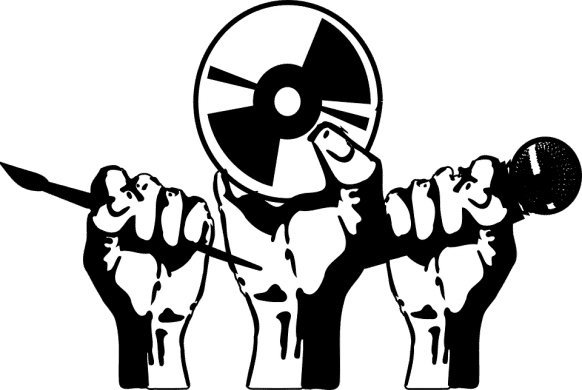“The credibility of the Human Rights Council is at stake. Countries massively violating human rights, including artistic freedom, should not be elected as members to the Council,” says Freemuse Executive Director, Ole Reitov.
Freemuse, having UN Special Consultative status, makes use of this status to report on violations on artistic freedom and gives voice to artists in Geneva.
Dødsdom og piskeslag i Saudiarabien
Saudi Arabia continues to violate international human rights conventions protecting freedom of expression. Palestinian poet Ashraf Fayadh was sentenced to death on 17 November 2015 by a Saudi Arabian court for renouncing Islam.
Although another Saudi court overturned the death sentence in January 2016, imposing an eight-year prison term and 800 lashes instead, it shows that Saudi Arabia disrespects the rights to free thinking, freedom of/from religion and freedom from torture. The systematic violations are damaging creativity and particularly discriminate against female artists.
Russisk nationalisme holder kunstnere tilbage
Political nationalism and religious orthodoxy are the main motivations behind attacks on artistic freedom in Russia. Throughout 2015 a number of cultural institutions came under pressure for being associated with the opposition, and Russian associations are not allowed to receive funding from foreign sister organisations as Russian legislation considers such support as resources given by “foreign agents”.
In 2015 Freemuse registered 32 attacks on artistic freedom in the country. Additionally, state-controlled media and cultural institutions do not feature artistic dissent.
Kinesiske kunstnere i et jerngreb
China continues to have a dark record of imprisoning and detaining its citizens, as well as employing tactics for causing the disappearances of people and silencing dissent. The country holds a firm grip on artistic freedom and continues to keep several Tibetan musicians imprisoned or detained.
In 2015 Freemuse registered a total number of 146 incidents against artistic freedom of expression in China.
Restriktioner og vold i Egypten og Cuba
Five years after the 2011 mass uprising in Egypt calling for “freedom”, among other key demands, state censorship of the arts in the name of “protecting public morals and state interests” continues to stifle free artistic expression. In the wake of a security clampdown on free expression since the military takeover of the country three years ago, rights advocates and artists lament that the space for free artistic expression and creativity has diminished in Egypt as restrictions on art and literary works that address politics, sex and religion, remain firmly in place.
In 2015 Freemuse documented 21 cases of violations on artistic freedom of expression in Cuba, including the imprisonment of three artists.
The annual election for seats on the 47-nation Human Rights Council will be held in the General Assembly on 28 October 2016.














